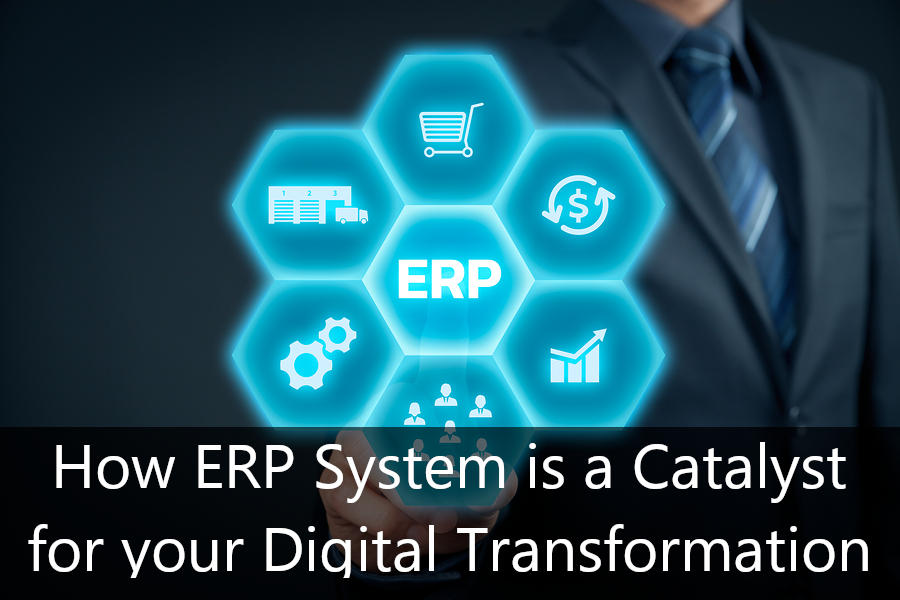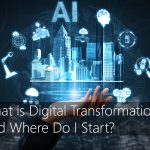
Because we are now living in a digital era, businesses know they need to take full advantage of their digital transformation to ensure efficient productivity and continuous growth.
But what exactly is digital transformation and what does it mean for your business?
Digital transformation is defined by evolving how your business performs with the optimization of technology to gain value for your employees and customers. This transformation is very important as it helps companies effectively “maneuver” through day to day business decisions and functions in a timely manner with the use of technology. In older industries such as the manufacturing and distribution businesses, digital transformation has changed and improved the industry’s processes drastically.
How an ERP System can help you smooth things out?
An example of business related technology you need for your digital transformation is an Enterprise Resource Planning (ERP) system, it helps companies with business operations and gain insight with the use of business process management tools, which manages data within an organization. Every business function are integrated all under one “umbrella” that can be accessed by all of the company’s employees. This gives employees the flexibility to access information and functions whenever and wherever they want all under one hub. ERP systems offer a broad variety of business tools from Financial and Accounting to Human Resource to Manufacturing. This powerful software enables companies to be efficient through automation, flow of operation, simplified data, and top notch security; easing the complications of making mistakes and ultimately streamlining the organization to further performance and profits.
Your Digital Transformation Needs an ERP System
To tie it all together, digital transformation has been extremely beneficial for companies and its employees, but it could have not done it without ERP systems. Extensive amounts of data is collected everyday which can pile up making it a messy situation. ERP solutions organize and analyze all of the data that is in the system to make it easier for employees to access and understand. The solution makes decisions, or at least prepares decisions, on its own making it a powerful integration for any company out there; then it can adapt to data making continuous improvements within itself.
In addition, Artificial Intelligence (AI) learn more about patterns of behavior to “augment humanity,” which is implemented in ERP solutions such as Microsoft Dynamics’ product line: NAV, GP, and 365. Machines learning using AI is the most critical technology as it gives a foundation to understand what’s going on today but more importantly potentially, identify future problems, trends, and signals in order to improve personalization and predictions. These represent the broader spectrum of technologies needed for success.
{{cta(‘127ac580-96e7-42bd-b8c9-d92566082043’)}}
In Conclusion
Businesses are always finding a way to improve its operations and performance, and technology makes it easier to reach those goals, especially with digital transformation. Digital transformation is the idea of developing business’ performance by investing in technology to gain more value for your customers. Yet, digital transformation would not be anything without ERP solution systems; being able to do all of the day to day business functions all under one software. ERP systems are viable to businesses regardless of what industry it is in, making it very important tool throughout all types of businesses.
Digital transformation is beneficial for all type of businesses, especially with the use of ERP systems. If you have any questions regarding ERP systems contact us.
{{cta(‘b32c9488-c1ad-4c3d-a8ef-3777d3ee080e’)}}





